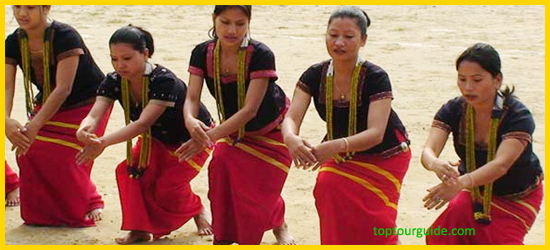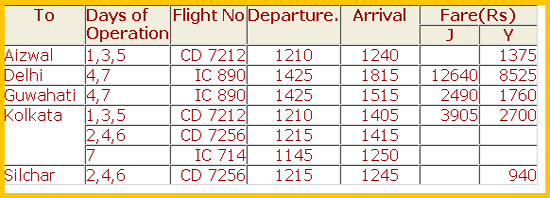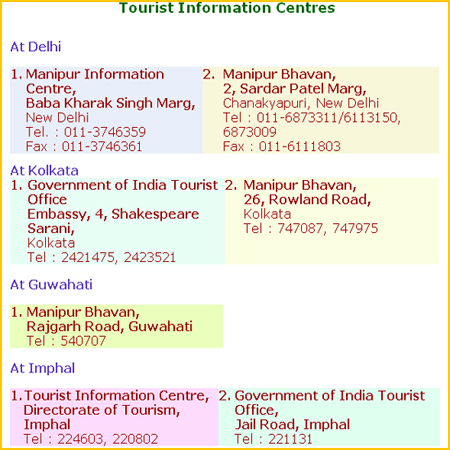Home :: Seven Sisters India :: Manipur Tourism
Manipur Tourism
Manipur is a state in northeastern India, Imphal as its capital. Manipur is surrounded by the Indian states of Nagaland to the north, Mizoram to the south and Assam to the west; it also borders Burma to the east. It wraps an area of 22,347 square kilometres (8,628 sq mi).
The Meiteis (Meeteis), who live mainly in the state's valley region, form the chief ethnic group (60% of the whole population) but reside in only 10% of the total land area. Their language, Meiteilon (Meeteilon), (also known as Manipuri), is also the lingua franca in the state, and was familiar as one of the national languages of India in 1992. The Muslims (Meitei-Pangal) also live in the valley; the Kukis, Nagas, Paites and other smaller collections form about 40% of the inhabitants but occupy the remaining 90% of the total land area of Manipur State. Manipur is considered a sensitive border state

Manipur Geography
Manipur is one of the seven states of Northeast India, and one of the Seven Sister States. There are four (4) major river basins in Manipur State, the Barak River Basin (Barak Valley) to the west, the Manipur River Basin in central Manipur, the Yu River Basin in the east, and a portion of the Lanye River Basin in the north. Almost all the rivers in the valley area are in the older stage and, therefore, deposit their residue load in the Loktak lake. Physiographically, Manipur may be characterized in two (2) distinct physical regions – an outlying area of rough hills and narrow valleys, and the inner area of flat plain, with all associated land forms. The valley region would have been a monotonous, featureless plain but for a number of hills and stacks rising above the flat surface.
Manipur Language
The authorized languages of the state are
- Manipuri
- English
Manipur Education
Education in Manipur today is at similarity with the rest of the country. Earlier, education in the state was meant for the elites of the Manipuri society. As per Census 2011 the overall literacy rate is 79.85% which is a little more than the national average of 74.04%. The literacy rate among the males is 82.14% and that of females is 65.46%.
Manipuri dance (Ras Lila)
A classical form of Manipuri dance based and inspired by the theme of Lord Krishna and his beloved Radha's love story and the devotion of the Gopis (companions) toward Lord Krishna. This graceful and slow movement of the dance makes it one of the most highly praised classical dances of India. The outfit is stylish, as there are nicely embroidered clothes that give luster to the beauty of the art.This dance is very exciting dance.
Manipur Map

The state map of Manipur provides enormous information on how the place works on each base. Manipur is a little place where there is no much colleges so all the undergraduates move out of home to different places to get well with their education. The maps of states names and the history about this place all bring to fact that this is an unusual tourist place.

Manipur Festivals
The different festivals of Manipur are Lui-ngai-niNingol Chakouba, Yaoshang, Ramjan ID, Kut, Gan-ngai, Chumpha, Christmas, Cheiraoba, Kang and Heikru Hidongba. Most of these festivals are usually celebrated on the root of lunar calendar. Almost every festival celebrated in other states is observed here and it makes Manipur a mini metropolis.
Manipur Tourist Attraction
Manipur, as the name suggests, is a ground of jewels. Its rich culture excels in every aspect as in martial arts, dance, theater and sculpture. The charm of the place is the greenery with the moderate climate making it a tourists' heaven. The beautiful and seasonal Shirui Lily at Ukhrul (district), Sangai (Brow antlered deer) and the floating islands at Loktak Lake are few of the rare things found in Manipur. Polo, which can be called a royal game, also originated from Manipur. Some of the main tourist attractions are:
- Imphal (Capital)
- Shree Govindajee Temple
- Keibul Lamjao National Park
- Loktak Lake
- Lamka
- Moreh
- Asheiningthou Garden
- Manipur Zoological Gardens
- Moirang
- Loktak Lake and Sendra Island
How to reach Imphal
The beautiful city of Imphal, the capital of Manipur is connected By Air, Train and Bus from other places as follows:
By Air From Imphal

By Bus to Imphal
- From Guwahati daily on the NH 39 via Dimapur and Komiha. Manipur State Road Transport Corporation(MSRTC) and many other private buses available.
- From Dimapur daily on the NH 39 via Komiha. Manipur State Road Transport Corporation(MSRTC) and many other private buses available.
- From Silchar daily on the NH 39 via Jiribam. Manipur State Road Transport Corporation(MSRTC) and many other private buses available.
By Train to Imphal
There is no direct train service to Imphal. But travellers can travel upto Guwahati or Dimapur (nearest rail head from Imphal) and then rest by bus or by air.
Manipur Tourist Information Center




